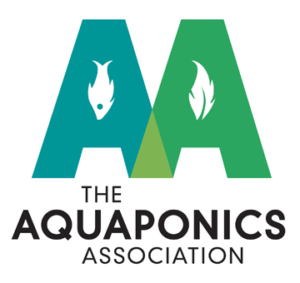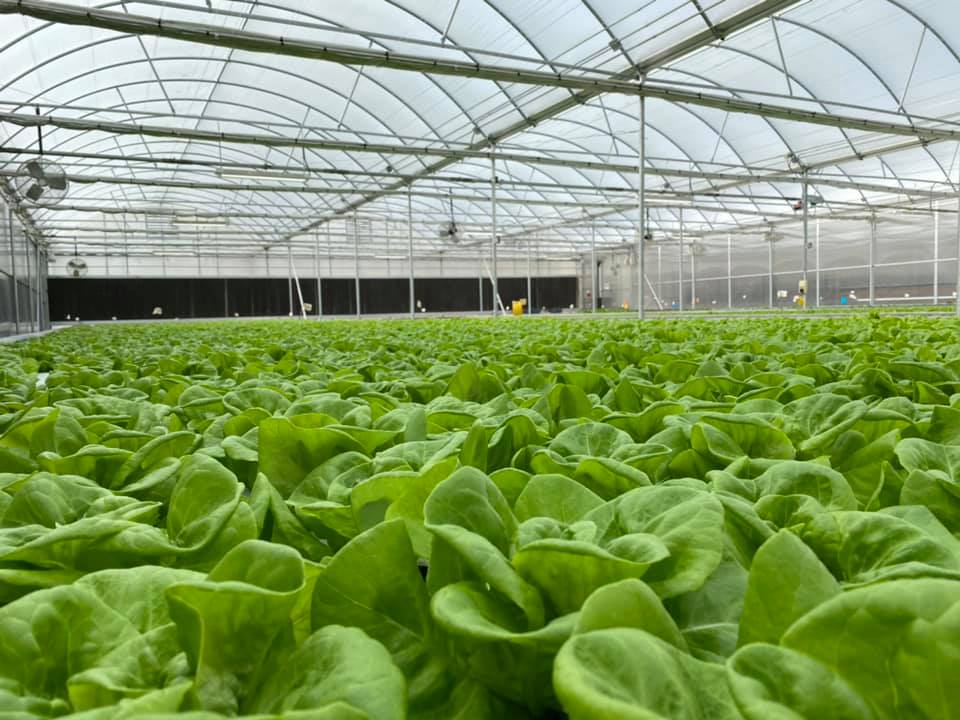2020 Statement on the Organic Certification of Aquaponic Crops
The Aquaponics Association is publishing the 2020 Statement on the Organic Certification of Aquaponic Crops to explain to policy-makers, the media, the public, and other industry players that aquaponics is a perfect fit for the Organic label; and that losing Organic-eligibility will set back this vital, sustainable industry. Over 200 organizations and individuals signed the Statement. See the full Statement and signatories, below, or click here for a PDF: 2020 Statement on the Organic Certification of Aquaponic Crops.We have to raise our voices to keep Aquaponics, Hydroponics, and other Controlled-Environment Growing eligible for USDA Organic certification! A Lawsuit against the USDA is attempting to strip Organic-eligibility from hydroponics and other "container-based" agriculture, which will impact aquaponics growers.In addition to this public Sign-On Statement, The Aquaponics Association has formally signed an Amicus Brief to the Court, expressing our view that aquaponics and other "container-based" growing must remain Organic-eligible. The Amicus brief was organized by the Coalition for Sustainable Organics.
***This campaign will persist even after the court case, you can still get involved! Sign on the next version and receive updates.

Here is the full Statement:November 23, 2020
2020 Statement on the Organic Certification of Aquaponic Crops


In Relation to Case No 3:20-cv-1537 before the US District Court for the Northern District of CaliforniaThe Aquaponics Association and undersigned organizations and individuals write to express our support for the continued eligibility for aquaponic crops to be certified USDA Organic. We are opposed to the pending lawsuit that seeks to revoke this eligibility: Case No 3:20-cv-1537 regarding the Organic Certification of “hydroponic operations, which are production systems that grow food and crops without any soil.”Aquaponics is a food production method integrating fish and plants in a closed, soil-less system. This symbiotic relationship mimics the biological cycles found in nature. Aquaponics has been used as a farming technique for thousands of years and is now seeing large-scale viability to feed a growing global population with fresh produce and efficient fish protein.Benefits of aquaponics include dramatically less water use; minimal agriculture discharge to air, water, and soil; the ability to grow food in cities, deserts, and other inhospitable climates; and more production per land area.Aquaponic systems include a hydroponic component in which plants are grown. If this lawsuit is successful, many aquaponic growers will likely lose their organic certification that is critical to their economic success.Aquaponics Fits the Organic MissionThe Organic label is about empowering consumers to identify products that match their values. Consumers do not prefer organic because it is grown in soil; they prefer it because it is pesticide-free, environmentally sustainable, and relies on natural ecosystems for plant growth.So, does aquaponic produce align with what the consumer expects when they purchase “Organic”?... YES!“Organic” is perceived by consumers to mean:Production without synthetic chemicalsMany aquaponic farms operate with only Organic, OMNI-certified materials. Aquaponic systems can thrive without the use of synthetic pesticides, herbicides, and fertilizers.Production that fosters the cycling of resources, ecological balance, and biodiversity conservationAquaponic systems can be closed-loop ecosystems in which only the minimum required water and nutrients are added and with minimal or no discharge. Aquaponics has also proven that it can produce more food than soil culture per area, thus saving more of the natural environment from the ever-growing toll of large-scale agriculture. And, aquaponics produces the most efficient animal protein: fish.Production that relies on biological ecosystems to support plant healthAquaponic systems rely on a robust microflora in the root zone—made of the same types and numbers of bacteria and fungi that thrive in soil. This flora converts nutrients into forms available to plants and maintains plant health by reinforcing naturally-occurring mechanisms of disease resistance—just as in a healthy soil.Production that responds to site-specific conditions by integrating cultural, biological, and mechanical practicesConsumers expect that organic produce has been grown with a healthy human element, where local customs, expertise, and ingenuity can overcome droughts, concrete jungles, and climate changes. Aquaponics allows environmentally-sensitive agriculture where growing in soil isn’t possible. And, controlled environment growing offers the possibility of local food year-round.This lawsuit, if successfully, would prevent entire regions of the country from the benefits of the organic label to their farmers.In an era of climate change, resource depletion, and rapid population growth, the organic price premium is a critical incentive to draw more growers into aquaponics. If this lawsuit succeeds, the aquaponics industry will not grow as quickly and our environment, health, and economy will suffer.On behalf of the Aquaponics Association, and the undersigned organizations and individuals (in italic), listed by state.ALABAMAGardens on AirSouthern OrganicsDan CloutierJames GreenALASKAMike IvkinTyrone BrownARIZONATroy FooteCALIFORNIAThe Agua FarmersAONE AquaponicsButler Valley Carole Sund CenterCelltech Co.Class1 produceFresh Farm AquaponicsGo Fish FarmLavineyard FarmsMilehigh AquaponicsSchoolGrown AquaponicsSeouchae Natural FarmingShwava, Inc.Smart Bee ControllersTaylor B. DuryeeDustin M GannonKarissa LawsonRaymond J SandersPatrick SilvisElizabeth Van PeltMark WeyantCOLORADOR5 High SchoolThe Aquaponic SourceBountyhaus School FarmsColorado AquaponicsDahlia Campus for Health and Wellness Aquaponic FarmEcoponex Systems International LLCEmerge AquaponicsFisheries Technology Associates, IncFlourish FarmsGrand Valley GreensGroFresh Farms 365Northsider Farms LLCCONNECTICUTBigelow Brook FarmDISTRICT OF COLUMBIAAnacostia Aquaponics DC LLCP.R. Harris Food HubUniversity of the District of ColumbiaFLORIDAAquaponic Lynx LLCThe Aquaponics Doctors, Inc.The Family FarmGreenView Aquaponics, LLCSahib AquaponicsTraders Hill FarmPaul FoucheAubrey K SloanPardeep K VediGEORGIAFM Aquaponic FarmGeorgia Aquaponic Produce LLCTRC AquaponicsUla FarmsAlicia Holloway-RicksAmber C. MonroeMary SharpeHAWAIIFriendly Aquaponics, LLCILLINOISCentral Illinois AquaponicsKENTUCKYK&L OrganicsPurple Thumb FarmsRegenerative EcosystemsWest KY AquaponicsLOUISIANAAquatic Ecosystems LLCCarrie BrekeenMARYLANDBella Vita FarmGreenway Farms, LLCUniversity of MarylandMASSACHUSETTSAquaponics AcademyGarrett M. TunisonManrique VarelaMICHIGANVital AquaponicsToure LEEMINNESOTABright Future FarmsMenagerie Greens Inc.Eric LundborgMISSOURI7Cs WineryAquatic Gardens GreenhouseIrene CassensLisa McLaurinBarry SkeltonRyan WarbrittonJanna WhiteMISSISSIPPISynergy Aqua FarmsRaymond Parker IIINORTH CAROLINA100 GardensFront Line Urban FarmsGrace Goodness Aquaponics Farm, LLCWilliam TilsonNORTH DAKOTABarfield Fresh Organic Produce & Fish, Inc.NEW HAMPSHIREVictory AquaponicsNEW MEXICODesert Verde Farm LLCGrowing the GreensHigh Desert AquaponicsHowling Coyote FarmsLettuce, Etc. LLCOpenponicsProject Urban GreenhouseSanctuary at ABQSanta Fe Community CollegePayton DavisDylan W. MartinRossana SallenaveNEW YORKiGrow NewsOko FarmsMelissa OwensMarc L. MaynardOHIOBerean Aquaponic Farms and Organics LLCWildest FarmsOKLAHOMAGreener Grounds LLCReid RanchSymbiotic Aquaponic LLCDonald JacksonDavid TurnerJeff WimberlyOREGONIngenuity Innovation CenterLive Local OrganicPractical AquaponicsTriskelee FarmPENNSYLVANIAAquaponics at State HighFarms Close ByYehudah Enterprises LLCJack LykeTEXASBioDiverse Technologies LLCBnE EnterprisesDoodley Dee’s Farm, LLCEast Texas Aquaponics, LLCGardenWorks FarmsGentlesoll FarmHannaLeigh FarmK&E Texan LandscapingKing’s FarmThe Modern Victory GardenR&B Aquatic Distribution, Inc.Tarleton State University, Aquaponics HydrotronWest Texas Organic GardeningUTAHAquaponics OlioCarl SearlePany ZakVIRGINIAGold-Micro CorporationGrace AquaponicsReturn to Roots FarmVERMONTThe Mill ART GardenCourtney DragiffWASHINGTONImpact Horizon, Co.The Farm PlanLife Tastes Good LLCNorthwest Aquaponics LLCWind River ProduceEd FavillaJason MorseDon MuellerWISCONSINNelson and Pade, Inc.Jayne LaubyINTERNATIONALInternational Society of Horticultural ScienceAUSTRALIAWirralee Pastoral Solum Farm Practical AquaponicsBHUTANChhuyang – Aquaponics in BhutanBRAZILHabitat MartePedra Viva AquiculturaBULGARIAVia Pontica FoundationCANADAAgro Resiliency Kit (ARK) Ltd.Fresh Flavor LtdLethbridge CollegeW.G. Guzman Technical ServicesGarden City Aquaponics Inc.Green Oasis Foods Ltd.Pontus Water Lentils Ltd.Aquatic GrowersUniversity of GuelphPower From Within Clean Energy SocietyGREEN RELIEFGraeme Smith Consulting ML Aquaponics IncNorth Star AgricultureEGYPTCentral Laboratory for Aquaculture ResearchFRANCEVegetal Grow DevelopmentINDIAProf Brahma Singh Horticulture Foundation, New DelhiBlue’s and Green’sSpacos Innovations Private LimitedITALYGrow Up JORDANAquaponics AIMALAYSIABNS Aquafresh FarmingNIGERIAUniversity of AbujaPHILIPPINESCentral Luzon State UniversityIanTim Aquaponics FarmPORTUGALTrue Spirit LdaROMANIABucharest Association of Romanian Aquaponics SocietySAUDI ARABIAAquaponicaSENEGALUcad DakarSINGAPOREAquaponics Singapore Contact: Brian Filipowich, info@aquaponicsassociation.org
